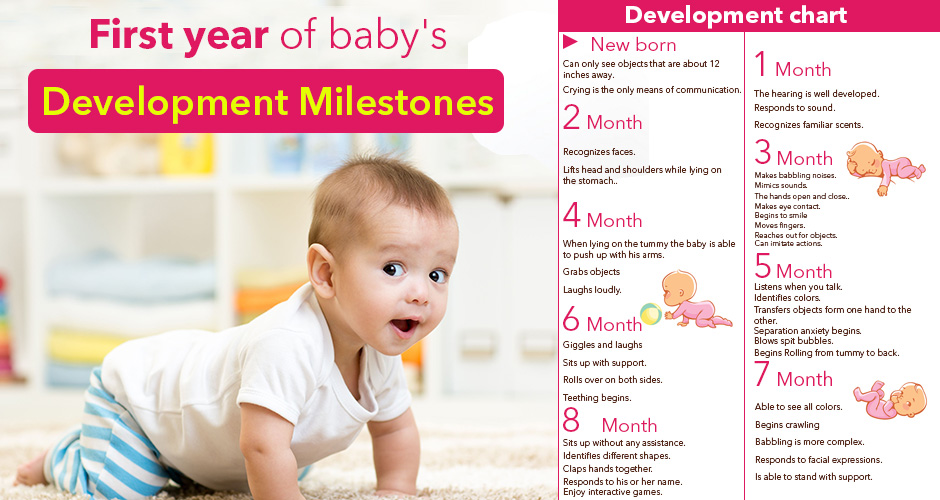 Source: bing.com
Source: bing.comCongratulations! Your little one has just turned 16 months old! At this stage, your baby is getting more curious and interactive, making each day more exciting than the last. As a parent, it’s essential to understand what to expect from your baby’s development at this age, so you can support them in reaching their milestones. Here’s a guide to Baby Development 1 Year 4 Months and what you need to know.
Table of Contents
Physical Development
At 16 months, your baby is likely to show significant growth in height and weight. You can expect your baby to weigh around 22 pounds (10 kg) and measure approximately 31 inches (78 cm) in height. Their physical skills are also developing faster, and they are getting more active every day.
At this stage, your little one may be able to:
- Walk without assistance
- Run with shaky steps
- Stand on tiptoes
- Climb stairs with help
- Throw balls with wobbly aim
- Build towers of two to four blocks
As your baby’s physical abilities continue to develop, it’s important to create a safe environment that allows them to explore and experiment with their newfound skills.
Social and Emotional Development
At 16 months, your baby is developing a sense of self and independence. They are becoming more aware of their own feelings and starting to recognize the emotions of others. Your baby is likely to become more playful and interactive with others, including family members and other children.
You may notice your baby engaging in new behaviors at this age, such as:
- Pointing to show interest
- Waving goodbye
- Blowing kisses
- Playing simple games
- Showing affection with hugs and cuddles
It’s essential to continue nurturing your baby’s emotional development by showing them love and affection, responding to their needs, and providing a secure and predictable environment for them.
Cognitive Development
At 16 months, your baby’s cognitive development is progressing rapidly. They are starting to understand the cause and effect of their actions and developing object permanence, which means they know that objects exist even when they can no longer see them.
Your baby is likely to start:
- Imitating others, including sounds and gestures
- Following simple instructions
- Exploring objects with curiosity
- Identifying objects by name
- Enjoying simple picture books
- Engaging in imaginative play
As a parent, you can support your baby’s cognitive development by providing them with plenty of opportunities to explore and learn through play, reading, and interactive activities.
Language and Communication Development
At 16 months, your baby’s language and communication skills are developing rapidly. They are starting to understand more words and phrases than they can say and are becoming more expressive with their gestures and sounds.
Your baby may be able to:
- Understand and follow simple commands
- Say several words and imitate animal sounds
- Use simple gestures, such as pointing or shaking their head
- Enjoy simple conversations with others
It’s important to continue talking to and interacting with your baby to support their language and communication development. Reading books, singing songs, and playing simple games are great ways to encourage your baby’s language skills.
Frequently Asked Questions
What should my baby be eating at 16 months?
At 16 months, your baby should be eating a variety of foods, including fruits, vegetables, grains, and proteins. Offer them three meals and two to three snacks a day, and avoid giving them foods high in sugar and salt.
How much should my 16-month-old be sleeping?
At 16 months, your baby should be getting around 11 hours of sleep at night and two to three hours of daytime naps.
When should I start potty training my baby?
Every baby is different, but most children are ready to start potty training between 18 and 24 months. Look for signs that your baby is ready, such as showing interest in the bathroom or showing signs of needing to go.
What toys are good for my 16-month-old?
At 16 months, your baby will enjoy toys that promote their physical, cognitive, and social development. Some great options include balls, blocks, musical instruments, and board books.
What should I do if I’m concerned about my baby’s development?
If you have any concerns about your baby’s development, talk to your pediatrician. They can assess your baby’s progress and offer guidance and support to help them reach their milestones.
In conclusion, Baby Development 1 Year 4 Months is an exciting time for both you and your little one. With each passing day, your baby is growing, learning, and developing new skills. By understanding what to expect at this age, you can support your baby’s development and help them reach their full potential. Enjoy this special time with your little one and cherish every moment!
